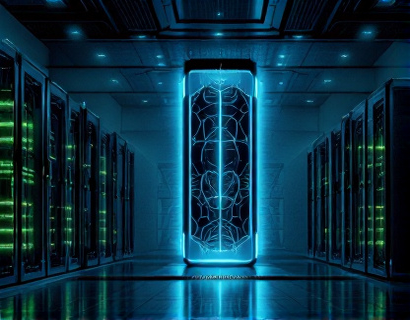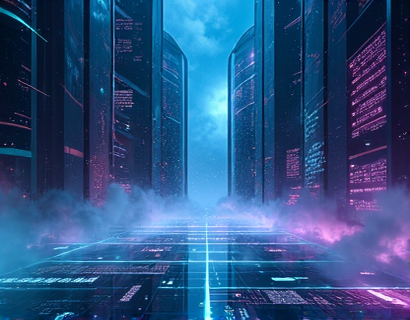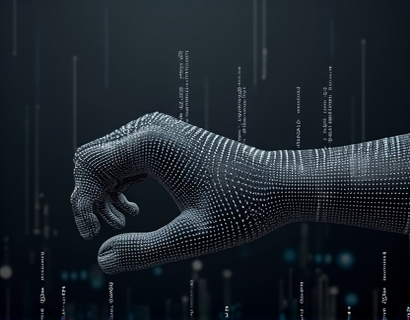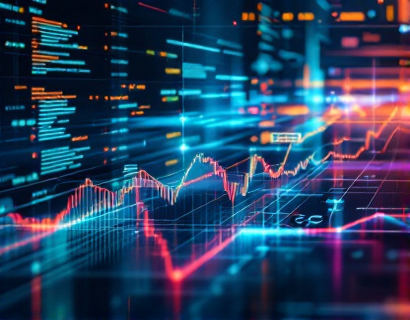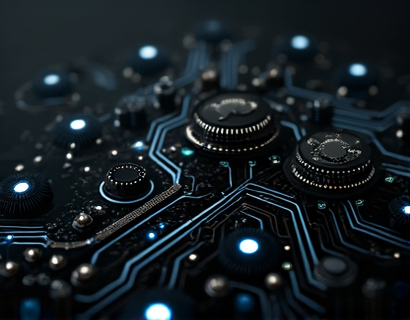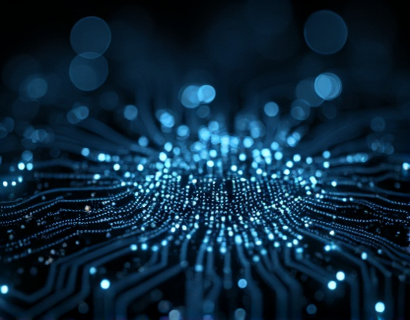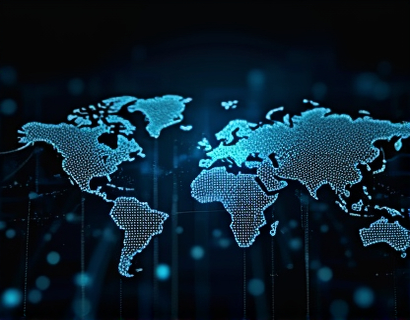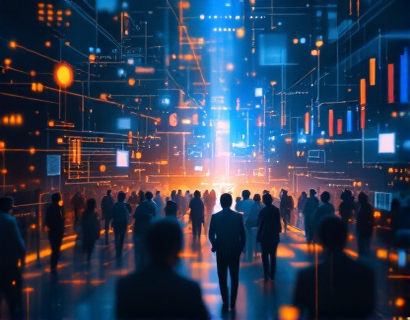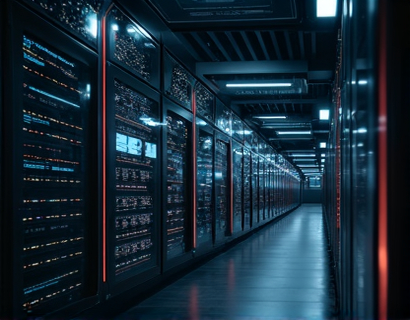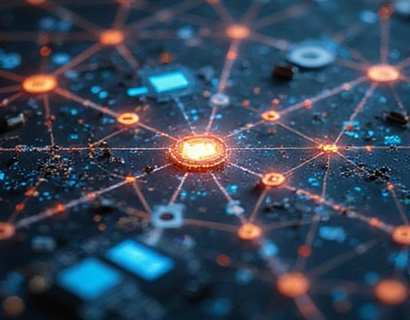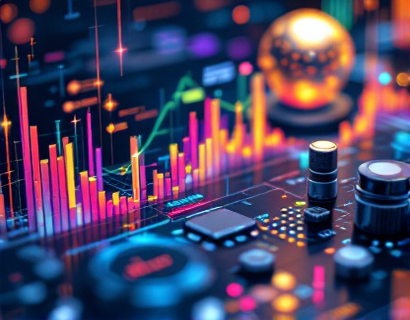Autonomous AI Agents: Revolutionizing Business Processes with Blockchain and Multi-Technology Automation
In the rapidly evolving digital landscape, businesses are constantly seeking innovative solutions to streamline their operations and gain a competitive edge. One of the most promising advancements in this realm is the integration of Autonomous AI Agents, which leverage the power of blockchain and multi-technology automation to optimize workflows and enhance efficiency. These AI agents are designed to operate seamlessly across various platforms and technologies, automating complex tasks and transforming the way businesses function.
The concept of Autonomous AI Agents involves the deployment of intelligent systems that can perform tasks with minimal human intervention. These agents are equipped with advanced algorithms and machine learning capabilities, enabling them to adapt to new situations and improve over time. By integrating blockchain technology, these agents can ensure secure, transparent, and decentralized operations, which is crucial for maintaining trust and integrity in business processes.
Blockchain Integration for Enhanced Security and Transparency
Blockchain technology serves as the backbone for many Autonomous AI Agent applications, providing a robust framework for secure and transparent transactions. The decentralized nature of blockchain ensures that data is distributed across multiple nodes, reducing the risk of single points of failure and enhancing data integrity. For businesses, this means that critical operations such as supply chain management, financial transactions, and contract execution can be conducted with a high level of security and trust.
When AI agents interact with blockchain networks, they can automate complex tasks such as verifying identities, tracking assets, and executing smart contracts. This automation not only speeds up processes but also minimizes the potential for human error. For instance, in supply chain management, an AI agent can monitor the movement of goods in real-time, ensuring that each step is recorded on the blockchain and accessible to all authorized parties. This level of transparency helps in quickly identifying and resolving issues, thereby improving overall efficiency.
Multi-Technology Automation for Comprehensive Workflow Optimization
Autonomous AI Agents do not operate in isolation; they are designed to integrate with a wide range of technologies to create a comprehensive automation ecosystem. This multi-technology approach allows businesses to leverage the strengths of different platforms and tools, creating a synergistic effect that maximizes productivity and efficiency. For example, an AI agent can integrate with cloud computing services, IoT devices, and traditional enterprise systems to create a seamless workflow.
Cloud computing provides the scalable infrastructure needed for AI agents to process large volumes of data quickly and efficiently. IoT devices can serve as sensors and actuators, providing real-time data that the AI agent can use to make informed decisions. Meanwhile, integration with enterprise systems ensures that the AI agent can access and manipulate existing data and processes, reducing the need for manual intervention. This multi-faceted approach enables businesses to create a cohesive and efficient operational environment.
Advanced AI Solutions for Complex Task Automation
The true power of Autonomous AI Agents lies in their ability to automate complex tasks that would otherwise require significant human effort and expertise. These agents use a combination of machine learning, natural language processing, and computer vision to perform a wide range of functions. For instance, in customer service, AI agents can handle incoming inquiries, provide personalized recommendations, and resolve issues through chatbots and virtual assistants. This not only improves customer satisfaction but also reduces the workload on human support teams.
In the realm of finance, AI agents can automate trading strategies, risk assessment, and compliance monitoring. By analyzing vast amounts of data and identifying patterns, these agents can make informed decisions and execute trades with high precision. Similarly, in manufacturing, AI agents can optimize production schedules, predict maintenance needs, and ensure quality control, leading to increased efficiency and reduced downtime.
Enhancing Decision-Making with Data-Driven Insights
One of the key benefits of Autonomous AI Agents is their ability to provide data-driven insights that enhance decision-making processes. By continuously analyzing data from various sources, these agents can identify trends, predict future scenarios, and recommend actions. This capability is particularly valuable in strategic planning and operational management.
For example, in the retail industry, an AI agent can analyze sales data, customer behavior, and market trends to forecast demand and optimize inventory levels. This ensures that businesses can meet customer needs without overstocking or understocking products. In the healthcare sector, AI agents can process patient data and medical research to assist doctors in making more accurate diagnoses and personalized treatment plans.
Building Resilient and Adaptive Business Processes
The integration of Autonomous AI Agents with blockchain and multi-technology automation creates business processes that are not only efficient but also resilient and adaptive. These processes can dynamically adjust to changing conditions and new challenges, ensuring continuous improvement and sustainability. For instance, in the face of a global supply chain disruption, an AI agent can quickly reroute shipments, find alternative suppliers, and adjust production schedules to minimize downtime and maintain service levels.
Moreover, the decentralized nature of blockchain ensures that these processes are less vulnerable to cyber attacks and data breaches. Since data is stored across multiple nodes, the risk of a single point of failure is significantly reduced. This level of resilience is crucial for businesses operating in highly regulated industries or those handling sensitive information.
Case Studies: Real-World Applications of Autonomous AI Agents
Several industries have already begun to implement Autonomous AI Agents with blockchain and multi-technology automation, achieving significant improvements in efficiency and productivity. One notable example is the logistics sector, where AI agents are used to optimize routes, manage fleets, and track shipments. By integrating with blockchain, these agents can ensure transparent and secure transactions, reducing fraud and increasing trust among stakeholders.
In the financial services industry, AI agents are being used to automate trading and compliance processes. For instance, a major investment firm implemented an AI-driven agent that monitors market data, executes trades, and ensures regulatory compliance in real-time. This has led to faster decision-making, reduced operational costs, and improved accuracy in reporting.
Another example comes from the manufacturing sector, where AI agents are integrated with IoT devices to monitor equipment health and predict maintenance needs. By analyzing sensor data and historical performance, these agents can schedule maintenance proactively, preventing unexpected breakdowns and extending the lifespan of machinery. This not only reduces downtime but also lowers maintenance costs.
Challenges and Considerations
While the benefits of Autonomous AI Agents are clear, there are several challenges and considerations that businesses must address to successfully implement these solutions. One of the primary concerns is the integration complexity, as combining multiple technologies and systems requires careful planning and expertise. Businesses need to ensure that their IT infrastructure is capable of supporting these advanced systems and that they have the necessary talent to manage and maintain them.
Another challenge is the issue of data privacy and security. Although blockchain provides a secure framework, the sensitive nature of data being processed by AI agents necessitates robust security measures. Businesses must implement strong encryption, access controls, and regular security audits to protect against potential threats.
Additionally, there is the matter of regulatory compliance. As AI and blockchain technologies are still evolving, regulatory frameworks are often lagging behind. Businesses must stay informed about relevant regulations and ensure that their AI agents comply with all applicable laws and standards.
Future Trends and Opportunities
The future of Autonomous AI Agents looks promising, with ongoing advancements in AI, blockchain, and other technologies opening up new possibilities. One area of growth is the development of more sophisticated AI models that can handle even more complex tasks and operate with greater autonomy. The integration of edge computing will also play a crucial role, enabling AI agents to process data closer to the source, reducing latency and improving real-time decision-making.
Furthermore, the rise of decentralized applications (dApps) and the Internet of Things (IoT) will create new opportunities for AI agents to interact with a broader range of devices and platforms. This will lead to more interconnected and intelligent systems, further enhancing efficiency and productivity across various industries.
In conclusion, Autonomous AI Agents represent a significant leap forward in business process automation, offering unparalleled efficiency, security, and adaptability. By leveraging blockchain and multi-technology automation, these agents can transform the way businesses operate, providing a competitive edge in the digital age. As the technology continues to evolve, businesses that embrace these innovations will be well-positioned to thrive in an increasingly complex and dynamic market.



